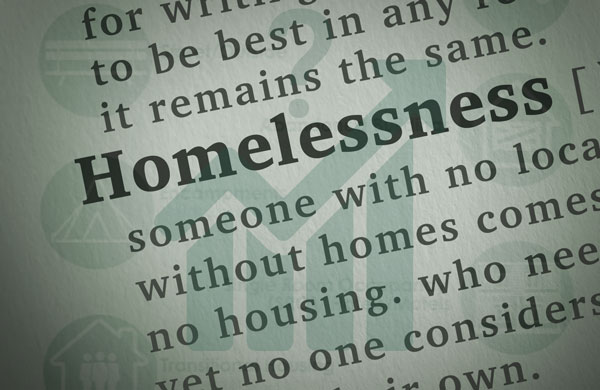Primary audience: HCH health center staff.


This month we take up the notion of “proving” health center patients are indeed experiencing homelessness. (Find a less colloquial, in-depth version of this in our 2018 technical assistance notice.)
With limited resources, HCH health centers must ensure that their federal funds are used exclusively for their intended purpose (while noting the 25% rule). Since many HCH health centers waive most fees for their unhoused patients, it is common for them to require some sort of documentation that HCH clients are, in fact, experiencing homelessness according to the HHS definition so they don’t use HCH funds inappropriately.
Notwithstanding the regulatory complexities, we should not go further without acknowledging that verifying homelessness is an oxymoron, in a certain sense. Homelessness is an absence of housing, not a presence of something else, so the notion of verifying a lack of stable housing is akin to proving a negative. Of course, it is not that simple, but we shouldn’t let operational minutia mask the “why” of our work.


Demystifying Federal Requirements
HRSA has no mandate that HCH patients document or verify their homelessness. It is unclear how many may misunderstand this but just in case, know this is not a HRSA issue. It is, however, a federal one.
All nonprofits that receive more than $750,000 of federal funding in a year (i.e., most health centers) are subject to what’s known as the A-133 audit. This audit requires grantees to demonstrate that their federal funds are used as intended. In the case of the HCH grant, health centers must demonstrate that their HCH funding is only used to support services for those experiencing homelessness.
Third-Party Verification
Many require a third party to verify homelessness. For such programs, a simple form stating that an individual is in a living situation considered by HRSA as homelessness must be signed by someone other than the patient or health center staff. Often a shelter or outreach worker does this task. On the street, these are often known as homeless letters, a voucher of sorts for free or discounted health care for a year. For most who use this process, as far as we have heard, it is rarely a major burden.
But it, too, is not mandated. Dozens of HCH health centers permit self-attestation – the patient themself signs the form – and this passes muster in many operational site visits every year. See the appendix of this paper for examples of these forms. What matters is that health centers have a written policy describing eligibility for services, whether that policy requires self-attestation or a third party.
Key Takeaways:
- You need a policy that governs Eligibility for Services, per OMB A-133, in addition to Eligibility for the Sliding Fee Discount Schedule.
- HRSA does not require third-party verification of homelessness.
- Be mindful of other funders or referral programs that may require stricter policies.
- Approaches to patient eligibility should be low-barrier and trauma-informed.
Considerations in Planning Your Approach
So, if you don’t have to provide third-party verification of homelessness, why might you?
- It ensures proper use of funds
Health centers are highly regulated nonprofits that must continually adhere to the compliance standards of federal, state, and local-government funders, in addition to private donors. Third-party verification can be an effective tool for assuring auditors and funders that your services are implemented as prescribed. - Other homeless services may require it
Other service providers may utilize more stringent eligibility criteria, such as HUD-funded programs that operate under a narrower definition of homelessness. In order to make referrals to community partners, third-party verification may be necessary. - It may help to optimize scarce resources
With limited resources, stricter protocols for assessing service eligibility may decrease uncompensated health care costs, since people without homes are less likely to have insurance.
Why not?
- It may be a barrier to care
In general, any paperwork can be difficult for people experiencing homelessness to retain. Policies that leave patients the responsibility of acquiring third-party signatures may dissuade them from accessing care. - It can hinder meeting patient projections
Unless health centers come close to seeing as many patients as they projected in their SAC application, HRSA may reduce their base award amount. If a health center is struggling to meet its targets, eliminating third-party verification may help by ensuring they are not turning away eligible patients. - It can consume staff time
Acquiring third-party homeless status documentation can consume valuable time. Avoiding third-party verification may improve your staff’s productivity.



